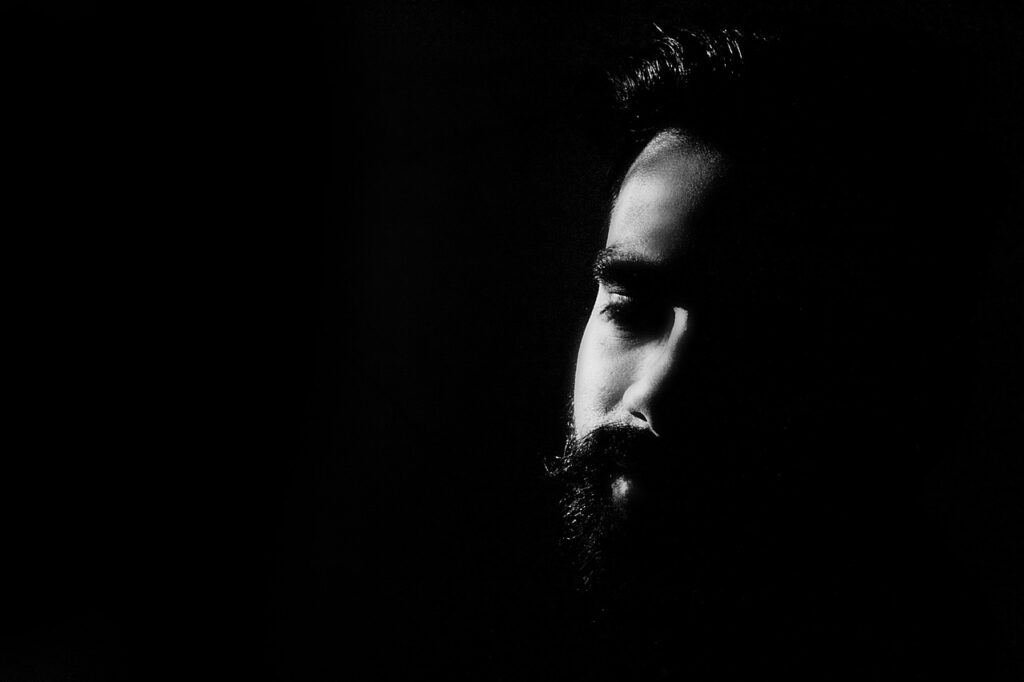Have you ever wondered why you can’t seem to grow a beard? It’s a question that many men have pondered over the years. In this article, we will explore the various factors that determine beard growth and why some individuals may struggle to achieve a fully-fledged facial mane. From genetics to hormones, we’ll uncover the secrets behind the enigma of lacking beard growth and offer some tips for those aspiring to rock a robust beard. So, if you’ve ever found yourself wondering, “Why can’t I grow a beard?” stick around, and we’ll shed some light on this hairy subject for you.
Why Can’t I Grow a Beard?
If you’ve ever found yourself wondering why you can’t grow a beard, you’re not alone. Many men experience frustration or disappointment when they find that their facial hair isn’t as thick or full as they’d like it to be. The ability to grow a beard is influenced by a variety of factors, including genetics, age, ethnicity, stress and health, nutrition, lifestyle choices, medical conditions, medication and treatments, as well as care and grooming practices. Understanding these factors can help shed some light on why you might be struggling to grow the beard of your dreams.
Genetics and Hormones
One of the primary factors influencing your ability to grow a beard is genetics. Your genetics determine the thickness, density, and pattern of your facial hair. If your father or other male relatives have a full beard, it’s likely that you have the genetic potential for facial hair growth as well. However, genetics alone isn’t the only factor at play. The hormone testosterone also plays a crucial role in beard growth. Testosterone is responsible for triggering the development of facial hair during puberty, and it continues to influence beard growth throughout your life. If you have lower levels of testosterone, it may impact the growth and thickness of your beard.
Age
Age is another factor that can affect your ability to grow a beard. During puberty, hormone levels surge, triggering the growth of facial hair in many boys. However, the timing and extent of this growth can vary. Some boys may experience a full beard by their early twenties, while others may need to wait until their mid-twenties or even later to see significant facial hair growth. As you age, your hormone levels may decrease naturally, which can lead to a decrease in beard growth or a thinning of the beard you already have.

Ethnicity
Ethnicity is yet another factor that can influence your beard growth. Different ethnic groups have varying levels of hair follicle density and distribution, which can affect the overall appearance and growth of facial hair. For example, individuals of East Asian descent tend to have lower hair density and may struggle to grow a full beard. On the other hand, individuals of Mediterranean or Middle Eastern descent often have higher hair density and may experience more robust beard growth.
Stress and Health
Stress and overall health can also impact your ability to grow a beard. When your body is under significant stress, it diverts resources away from non-essential functions like hair growth, focusing instead on more immediate needs. Additionally, poor overall health or underlying medical conditions can hinder beard growth. Conditions such as hypothyroidism or nutritional deficiencies can affect hormone levels and disrupt the natural cycle of hair growth, leading to sparse or slow-growing facial hair.

Nutrition
Proper nutrition plays a vital role in the development and maintenance of a healthy beard. Your hair follicles require essential vitamins and nutrients like biotin, zinc, and vitamins A, C, and E to grow and function optimally. A diet lacking in these nutrients may hinder beard growth or result in brittle, lackluster facial hair. Incorporating a well-rounded diet with plenty of fruits, vegetables, lean proteins, and whole grains can support healthy hair growth, including your beard.
Lifestyle Choices
Certain lifestyle choices can also impact your ability to grow a beard. Smoking, for example, has been linked to slower hair growth and increased hair loss. Alcohol consumption in excess can also have negative effects on your overall health, which may impact beard growth. Moreover, excessive stress, lack of sleep, and improper self-care practices like not washing your face regularly or using harsh products can all contribute to suboptimal beard growth.

Medical Conditions
Some medical conditions can interfere with beard growth. Conditions such as alopecia areata, a type of autoimmune disorder that causes patchy hair loss, can affect facial hair as well. Hormonal disorders like polycystic ovary syndrome (PCOS) can also disrupt the balance of hormones in the body, potentially leading to sparse or abnormal facial hair growth.
Medication and Treatments
Certain medications and treatments may interfere with beard growth. For instance, chemotherapy drugs can cause hair loss throughout the body, including the facial hair. Other medications, such as those used to treat acne or high blood pressure, may have side effects that impact your beard growth. If you suspect that your medication is affecting your ability to grow a beard, it’s important to speak with your healthcare provider for guidance.

Care and Grooming
Proper care and grooming practices can make a difference in the appearance and health of your beard. Regularly washing your face, exfoliating the skin, and moisturizing can help create a favorable environment for beard growth. Additionally, using a beard oil or balm can nourish the hair and promote growth. Trimming your beard regularly can also aid in even growth and reduce the appearance of patchiness. Remember, patience is key when it comes to growing a beard. It may take time for your beard to reach its full potential, so be consistent with your grooming routine and give it the care it needs.
Acceptance and Self-confidence
Lastly, it’s important to remember that the ability to grow a beard does not define your worth or masculinity. Every man’s journey with facial hair is unique, and many individuals are unable to grow a full beard regardless of their efforts. Embracing and accepting your unique features, including your facial hair, is a crucial part of cultivating self-confidence. Whether you have a full beard, a neatly trimmed goatee, or prefer a clean-shaven look, the most important thing is to feel comfortable and confident in your own skin.
In conclusion, the ability to grow a beard is influenced by a multitude of factors, including genetics, age, ethnicity, stress and health, nutrition, lifestyle choices, medical conditions, medication and treatments, as well as care and grooming practices. Understanding these factors can help explain why you may be experiencing difficulty in growing a beard. Remember to be patient, take care of your overall health, and embrace your unique features. Regardless of the results, the most important thing is to feel confident and comfortable in your own skin.

